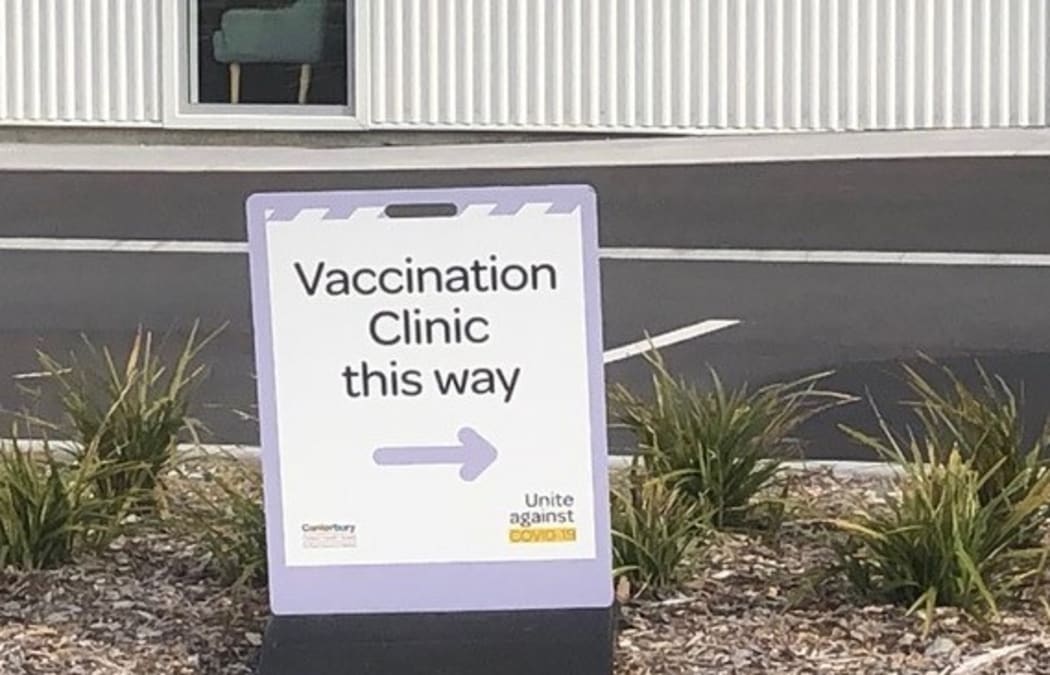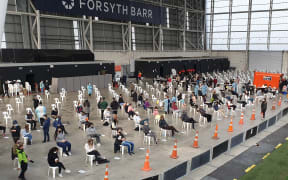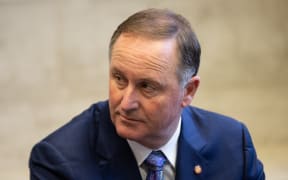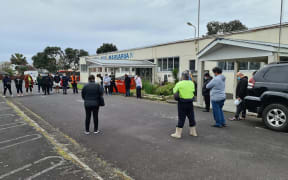While much focus of the Covid-19 vaccine rollout has rightly centred on Auckland, a trio of regional DHBs at the other end of the country are also leading the way.

Photo: RNZ
Nelson Marlborough, Southern and South Canterbury - alongside Auckland - have got more jabs into arms than any other area.
Nelson Marlborough leads the country when it comes to Covid vaccine shots with 124.7 doses per 100 people.
Of those 12 and over 77 percent now had their first dose.
While that sat a little behind Auckland, almost half of those in the top of the south were fully vaccinated, well ahead of New Zealand's biggest city.
Marlborough alone was doing even better with 85 percent having had their first jab.
Marlborough Primary Health chief executive Beth Tester said it was down to being quick out of the blocks.
"We planned district-wide and we got out early talking to our community, working with businesses, we linked in with iwi and Māori health providers, and we set up a central vaccination centre with support of general practice."
They also recognised the need to get into remote rural areas and came up with novel methods to do it.
"We funded a boat to bring people into Havelock. After the floods they were cut off and unable to come by roads and we've done that again for them to come into Havelock to finish off their second doses," Tester said.
"It was also helping their well-being as well as enabling vaccination, so I think it's a win-win."
Doses per 100 people by district health board
The need to reach rural communities also sparked a conversation between Wakefield Pharmacy co-owner Scott Fry and his brother - a doctor at Wakefield Health Centre.
A mass vaccination event was stood up at the village hall as a result and almost 500 people got their first dose earlier this month.
"I think just about every second person had a pair of Red Bands on which was good to see and we even had a couple of lambs show up at one stage," Fry said, of the those who turned up to the clinic.
"From the comments on the day there were a lot of people who said they wouldn't have got vaccinated if it wasn't easy to do, so we picked up a lot of extras which otherwise might've fallen through the cracks. Which is really good."
A second dose clinic would be held in Wakefield next month.
First doses by district health board
Further south, Southern DHB sat just behind Nelson Marlborough in getting doses into arms with 122.7 doses per 100 people.
In the deep south 79 percent had now had their first dose and 44 percent were fully vaccinated.
Southern DHB's Covid-19 vaccine rollout programme lead Hamish Brown said the success was down to supporting community services and trusting them to deliver the vaccine where it was needed.
"We recognised that we didn't have the resources to be able to deliver this by ourselves, so we deliberately set around working with WellSouth, working with primary and community care organisations - who know their communities best - to deliver the programme.
"I think collectively that strength has been what's allowed us to deliver."
As other DHBs had allowed community health services to pick up the slack the vaccine rollouts had picked up pace there as well, Brown said.
Māori and Pasifika-led clinics also allowed them to reach those who were falling behind and again the DHB had sought to support iwi-led initiatives, Brown said.
Second dose by district health board
South Canterbury DHB was just behind Auckland in vaccine doses.
Three-quarters had at least one dose and 43 percent were fully vaccinated.
Timaru District Mayor Nigel Bowen credited a sense of community and a shared purpose.
"Right from the get-go people were keen to get vaccinated so I just put it down to, one, being well-organised and, two, people didn't have the reservations. It wasn't nothing more than that.
"I think we've just had ample opportunity and the DHB have done a fantastic job."
The toughest part lay ahead with the push to reach 90 percent of those eligible, but Bowen said he was confident his community would play its part.







